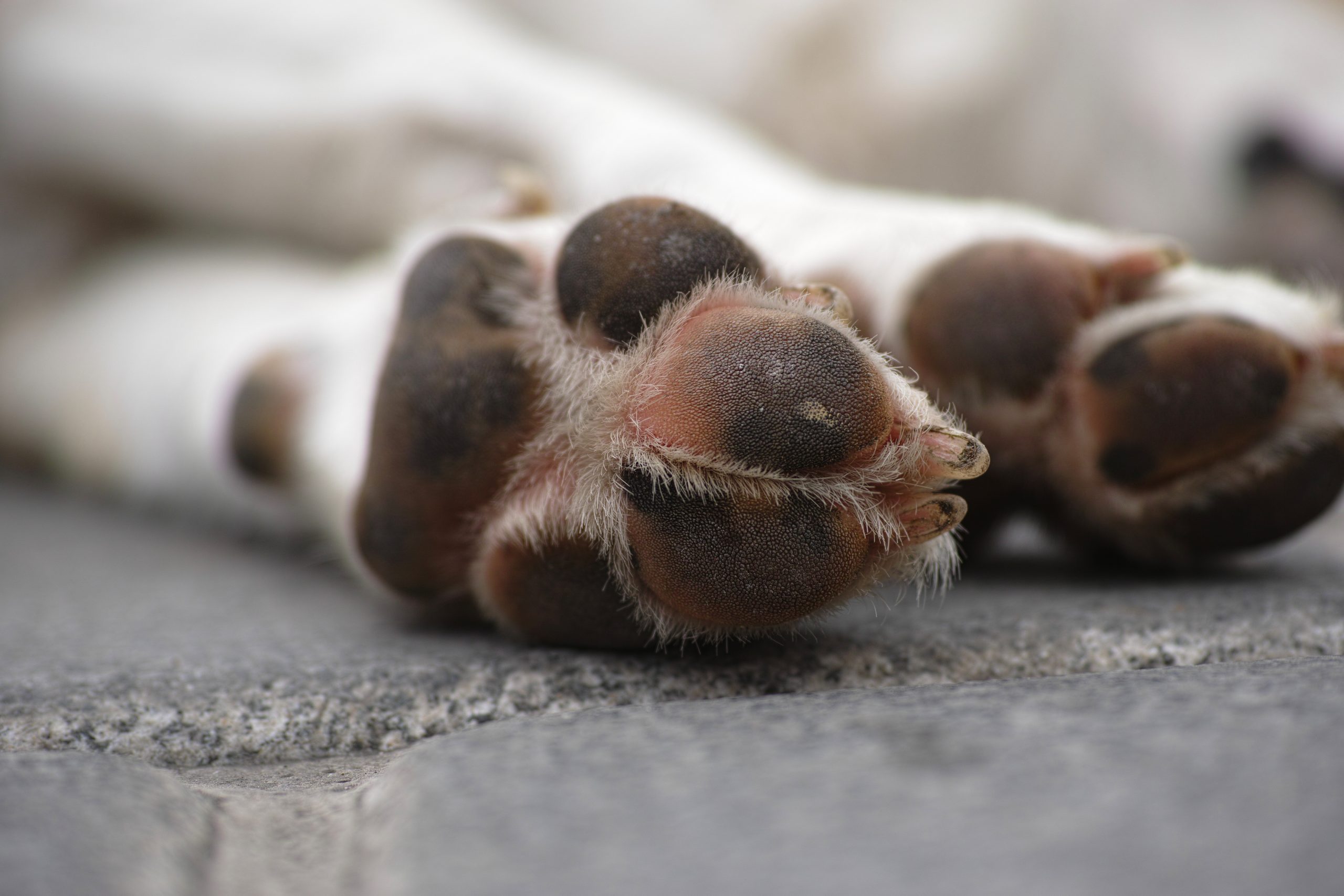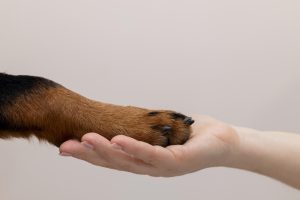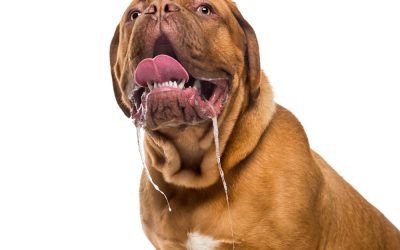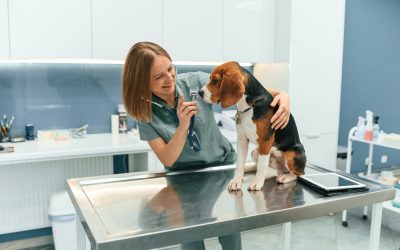Swollen Paw Dog: Causes and Treatment

If you’ve noticed your dog limping or paying extra attention to their paw, it’s natural to feel a little worried. A swollen paw might seem minor at first, but it can cause discomfort and, if left unchecked, may lead to more serious issues. Knowing what’s behind the swelling and how to care for it can help your dog feel better, faster.
Let’s explore some common causes of paw swelling and what you can do to help your furry companion get back on their feet—literally.
Why Do Dogs Get Swollen Paws?
Just like us, dogs can get sore or swollen feet for all kinds of reasons. Some are simple and heal quickly, while others need a little more attention. Here are a few common causes to keep in mind:
Minor Injuries and Everyday Mishaps
- Cuts or scrapes from stepping on sharp objects
- Sprains or strains from a jump or an awkward landing
- Insect stings or bites, which can trigger localized swelling
Allergies Are More Common Than You Think
- Grass, pollen, or dust can cause itchy, swollen paws.
- Certain foods may trigger allergic responses.
- Cleaning products or yard treatments can irritate sensitive paw pads.
Infections and Skin Conditions
- Bacterial or fungal infections from untreated wounds
- Parasites, like mites, can cause inflammation.
- Pododermatitis, a condition that causes paw inflammation, often linked to infections or allergies.
Since each situation is different, observing your dog’s behavior and the look of their paw can help guide your next steps.
What Signs Should You Look Out For?
If your dog’s paw seems swollen, it helps to check for a few other signs. These small clues can help you figure out how uncomfortable your pup might be:
- A visibly swollen or red paw
- Limping or avoiding pressure on the affected leg
- Licking or chewing one paw more than usual
- Warmth or tenderness when you touch the area
- Unusual discharge or a bad smell, which could mean infection
Getting a Proper Diagnosis
Sometimes, figuring out exactly why a paw is swollen takes a bit of detective work. Your vet may suggest a few simple tests to get a clearer picture, such as
- A hands-on exam to check for injuries, heat, or objects stuck in the paw
- X-rays if there’s a chance of a sprain or fracture
- Bloodwork to rule out infection or underlying conditions
- Skin scrapings or cultures to identify bacteria, fungi, or parasites
- Allergy tests, if recurring issues suggest an allergic reaction
Treatment: How to Help Your Dog Heal
Once you know what’s going on, your vet can recommend the best course of action. In some cases, there are also gentle things you can do at home to ease your dog’s discomfort.
Home Remedy
- “Check the paw for objects caught between the pads/toes.
- Check for insect stings or puncture wounds (though often hard to pinpoint).
- If possible, remove the trapped object with tweezers and wash the paw with warm, soapy water.
- If you can’t see anything trapped in the paw, check the dog’s leg to ensure no constricting material is present (which can easily cause swelling).
- Soaking the paw in an Epsom salt solution is often of benefit, regardless of the cause. Ten minutes in comfortably hot water (in a tub or basin) with Epsom salts dissolved within is typically an excellent short-term solution for swelling.
- If you can see an obvious lesion, the swelling does not quickly disappear, or the dog continues to favor the paw, call your vet for further advice. Veterinary attention in these cases is almost always in order.” (explained in the PetMD article)
What Medications Could Be Given?
- Antibiotics for infections
- Antihistamines for allergic reactions
- Anti-inflammatories to reduce swelling and discomfort
In more serious situations, such as a deep infection or broken bone, surgery might be necessary, but your vet will guide you through every step.
When to Call the Vet
While some swelling clears up with a little home care, other cases call for professional help. Here’s when it’s best to book a vet visit:
- The swelling doesn’t go down after a day or two.
- Your dog is in obvious pain or becomes less active.
- There are signs of infection, including pus, a strong odor, or worsening redness.
- You’re unsure what caused the swelling.
Keeping Those Paws Healthy
Prevention goes a long way when it comes to paw care. Here are a few tips to keep your dog’s feet happy and protected:
- Check their paws regularly after walks or playtime.
- Keep nails trimmed to avoid injury.
- Trim fur between the pads to prevent matting and debris buildup.
- Use a paw balm to keep pads soft and protected.
- Avoid hot pavement, icy sidewalks, or rough terrain when possible.
- Clean and rinse paws after walking on salt-treated roads or pesticide-treated grass.
How Can Pet Insurance Help You if Your Dog Needs Treatment?
Pet insurance can be a valuable tool in managing the costs of treating a dog’s veterinary expenses. By having a pet insurance policy in place, you can have peace of mind knowing that you can provide medical care for your furry companion without worrying about the financial burden. Pet insurance can help cover the costs of veterinary consultations, diagnostic tests, medications, and even specialized treatments if required.
Reimbursement
This method is the most common for pet insurance companies. You pay out of pocket for the veterinarian bill, and then the insurance company reimburses you for what’s covered under the insurance plan. The steps look like this.
- You pay the vet bill after your dog’s visit.
- You fill out the pet insurance claim form.
- Submit the claim form and other required documentation to the insurer.
- After the claim is approved, you will be reimbursed for eligible expenses.
What Does Odie Pet Insurance Cover?
Pet insurance covers various veterinary expenses, providing financial protection and peace of mind for pet owners. Here are the details of the coverage options offered by Odie Pet Insurance:
Illness & Injury Plan
The Illness & Injury Plan is an all-inclusive insurance plan designed to cover a wide range of medical needs for your pet. This plan includes comprehensive coverage for various illnesses, injuries, and veterinary services. Some of the covered items include:
- Veterinary exams and consultations
- Diagnostics (e.g., X-rays, lab tests)
- Prescribed medications
- Surgeries and hospitalization
- Rehabilitation, acupuncture, or chiropractic treatments
- Medically necessary supplies
The Wellness Plan
The Wellness Plan is a monthly membership that focuses on preventive care and covers routine veterinary services.
- Provides reimbursements for routine care items such as wellness visits (exams and vaccines), testing and parasite prevention, dental cleanings and at-home dental care, vitamins, supplements, and more.
- Through Odie’s partnership with Petivity, a leader in smart pet products and proactive care, Wellness Plan members can also receive reimbursements for Petivity devices and health kits, as well as eligible Purina food and supplements.
- Total reimbursement up to $700 per year.




